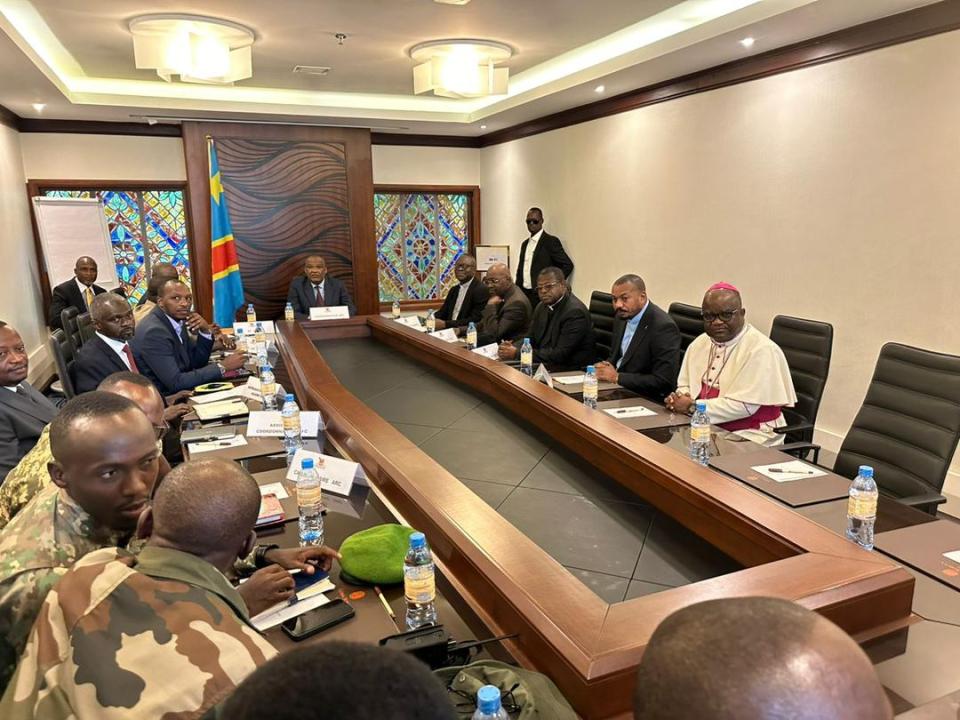By Paschal Norbert
GOMA, FEBRUARY 13, 2025 (CISA) – Senior Catholic and Protestant Church leaders in the Democratic Republic of Congo (DRC) have met with the top leadership of the M23-AFC rebel coalition in Goma. The meeting, which took place on February 12, 2025, is seen as a critical step toward resolving the escalating crisis in eastern DRC, where the rebels have recently launched an offensive and seized control of the city amid intense fighting.
The delegation, composed of senior figures from the National Episcopal Conference of Congo (CENCO) and the Church of Christ in Congo (ECC), engaged in discussions with M23 leaders and Alliance Fleuve Congo (AFC) leader Corneille Nangaa. Their objective was to persuade the armed groups to embrace dialogue as a means of addressing the nation’s long-standing challenges.
Church Leaders Present Peace Initiative
In the meeting, Msgr Donatien Nshole, Secretary General of CENCO, emphasized that armed struggle is not the solution to the DRC’s problems. Instead, he and his delegation presented the “Social Pact for Peace and Living Together in the DRC,” a peace roadmap introduced jointly by the Catholic Church and the ECC on January 15, 2025.
“The objective was to convince them that armed struggle is not the solution. We brought forth a proposal that can contribute to lasting peace,” Msgr Nshole stated in an interview with local media.
This initiative, they said, aims to address the humanitarian crisis and ongoing conflict in eastern DRC, where violence has intensified due to M23’s resurgence. The rebel group is widely believed to be receiving support from neighbouring Rwanda, a claim that has further complicated regional stability.
Commitment to Cease Hostilities
According Msgr Nshole, the CENCO-ECC delegation secured assurances from M23-AFC leaders that they would refrain from any actions that could lead to the balkanization of the DRC. The religious leaders also welcomed the rebels’ willingness to engage in dialogue and explore peaceful solutions.
This development follows a recent meeting between the religious leaders’ delegation and President Félix Tshisekedi at the African Union City, underscoring the Church’s efforts to act as a bridge for national cohesion. The Church’s broader peace-building mission includes engaging political leaders, civil society, the opposition, and African heads of state to form a collective front against instability in the region.
Political Reactions
The meeting with M23-AFC has sparked sharp political reactions. While opposition figures have largely welcomed the initiative, members of the ruling Union for Democracy and Social Progress (UDPS) have openly criticized the engagement with rebels. The ruling party’s stance highlights the deep divisions in the Congolese political landscape regarding the best approach to restoring peace.
Despite the contestations, religious leaders remain resolute in their mission to broker peace. Their ongoing engagement with various stakeholders signals a determined push to end the violence that has devastated eastern DRC for decades. As the region watches closely, the success of the Church-led peace initiative could be a turning point in the quest for stability and reconciliation in the DRC and the broader Great Lakes region.
